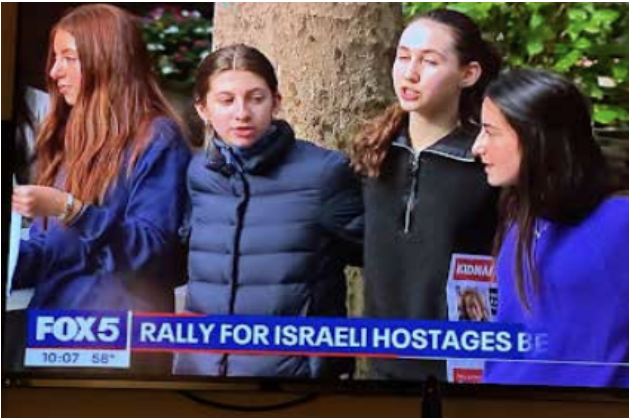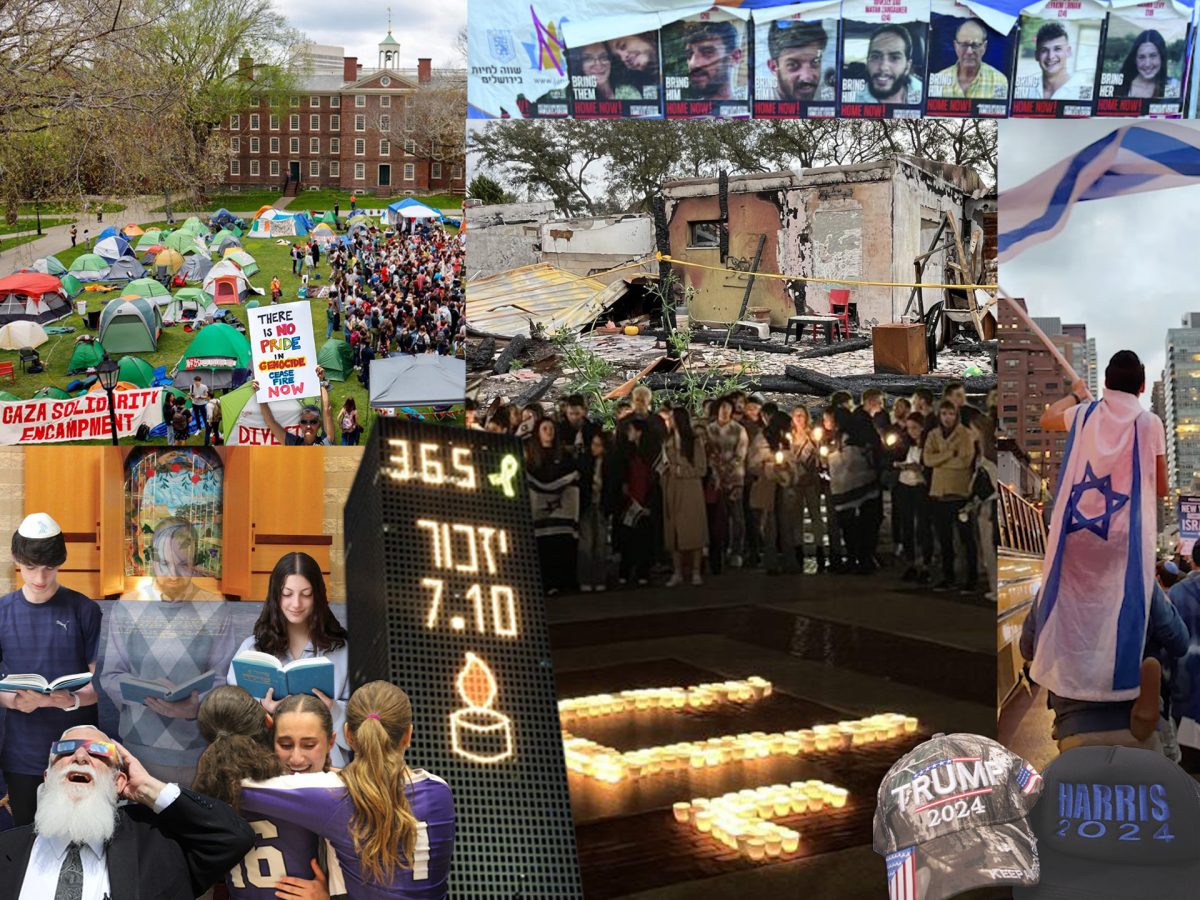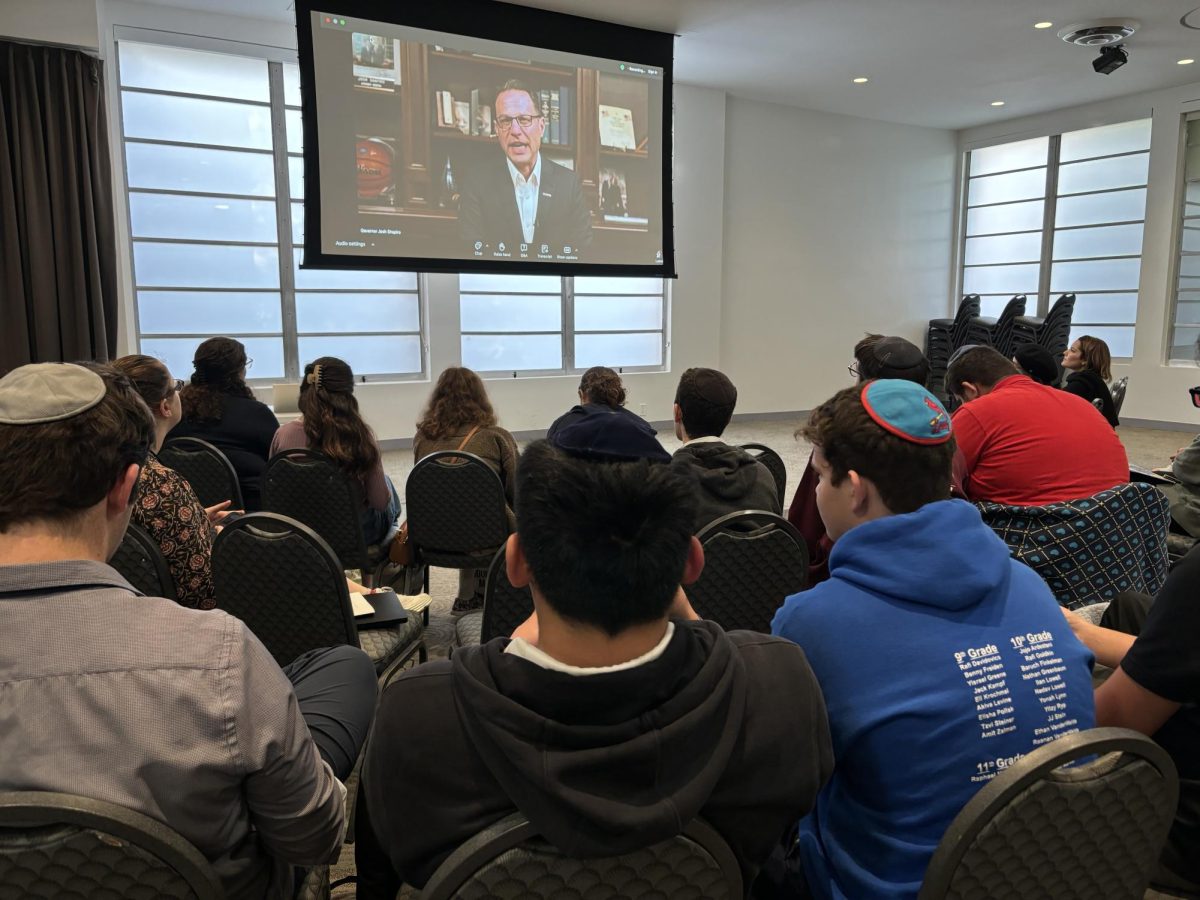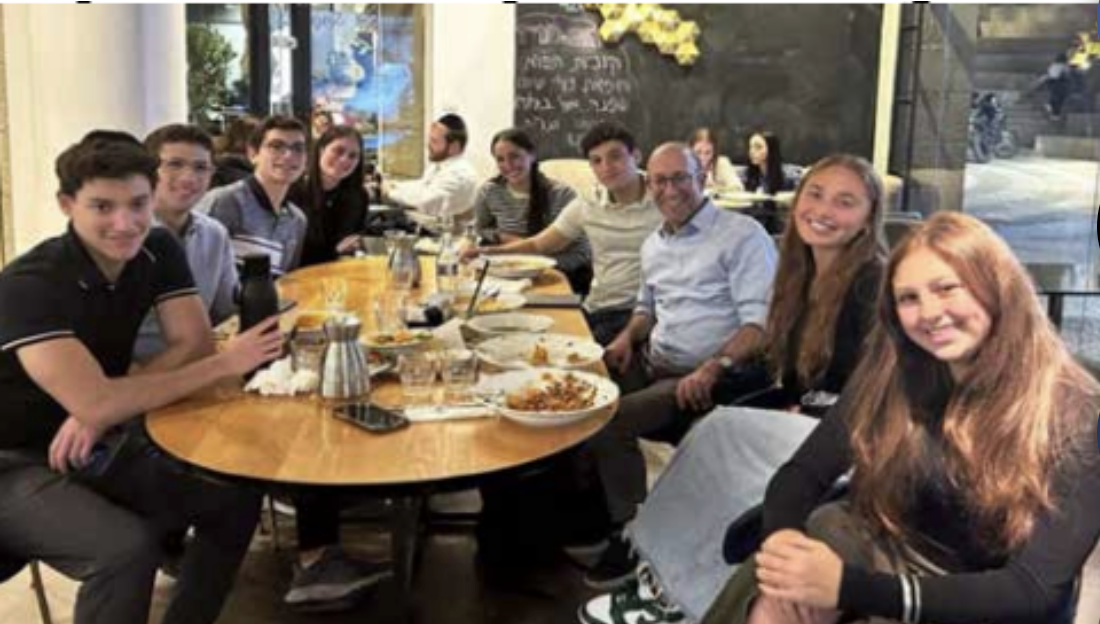On October 7, 2023, Shemini Atzeret, Hamas invaded Israel, killing over a thousand people and taking an estimated two hundred hostages. Israel responded by declaring war. Unsurprisingly, Ramaz did not remain silent, and sprang into action almost immediately, consistent with support for the State of Israel being a central aspect of Ramaz’s mission statement, and a critical value for Ramaz as an institution and the faculty and students who walk its hallways. Seemingly everyone in the school knows someone impacted.
Two hours after Simchat Torah ended in the United States, Rabbi Schiowitz posted a message to Schoology informing the school that the situation would be discussed with the entire school the next morning at davening.
That Monday morning, October 9, students and faculty gathered for an all-school shacharit davening, followed by remarks of Rabbi Chaim Steinmetz, Senior Rabbi of Kehilath Jeshurun, followed by Tehillim for the injured and missing. First period was canceled to accommodate the proceedings. Rabbi Schiowitz said that canceling a period was necessary to make the program meaningful.
Regular Shacharit returned later in the week, but all-school mincha continued. The school utilized these all-school mincha gatherings as an opportunity to announce upcoming Israel-related events and have speakers speak about the on-going situation in Israel. Speakers have included alumni Rebbeca Kalimi ’23 and Eliza Binstock ’23, current students Noya Mishagi ‘24 and Liam Gomberg ’24, Rabbi Haskel Lookstein, Eurovision third place winner Noa Kirel, and many Ramaz faculty.
Asked why all-school shacharit was discontinued while all-school mincha continued, Rabbi Schiowitz said that “everyone was really serious the first couple of days of the full school shacharit, but I felt like it was going to start to just become a little bit more chaotic and also draw people out of the routine. In the middle of the week, we shifted gears and we said we’ll go back to their regular minyans, a little normalcy, a little bit easier to manage. Everyone’s doing their routine and doing their own nusach. Then the mincha became an opportunity to bring everyone together.”
True to Ramaz’s long history of political activism, including being a prominent voice for Russian Jews in the 1970s and 1980s, the school has also been a constant presence at local rallies on behalf of Israel. Rabbi Haskel Lookstein spoke to the entire Upper School about this history and encouraged every student to stand up against antisemitism by coming to a rally organized by the UJA on October 10 at the UN.
The UJA rally was not the only rally Ramaz students were encouraged to attend. Ramaz students also attended another, smaller UJA-organized rally on October 18. The second rally was smaller than the first, with more than half the rally attendees being Ramaz students and parents. There was also another rally at the UN on October 20, which Ramaz students not only attended but helped set up.
Beyond these Ramaz initiatives involving tefilah and activism, many Ramaz Upper School students started their own chesed initiatives in support of Israel. Ramaz’s weekly challah bake proceeds went to different funds to help IDF soldiers for the two weeks after the initial attack. Every challah had a soldier’s name pasted on its wrapper. Students have also organized and run a number of fundraising drives, supported by the administration, including for supplies for soldiers, and toys for families of victims.
The future of this war is still unknown but Ramaz administrators expressed their intention to continue to engage in activism and chesed to help. When asked about the future of programming regarding Israel Rabbi Schiowitz responded, “I don’t know the full answer. I definitely feel I’ve definitely been trying to keep a balance of not being afraid to cancel class for something important, but not feeling chaotic.We canceled a class on Monday. We canceled a class on Tuesday. We’re trying to be a little bit grade specific sometimes. In other words, not everything has to be for everybody.”
Ultimately, Rabbi Schiowitz thinks it’s important for the school not to lose focus on the situation. “I really was motivated by what RabbiLookstein said, that you have to maintain your focus even after everyone gets fatigued and they’re not thinking about it anymore. I don’t want to be like, ‘Okay, now we’re back to normal.’ But there’s also a focus within a sense of normalcy,“ he said.
This story originally appeared in the Ramaz Rampage on Dec. 3, 2023.













